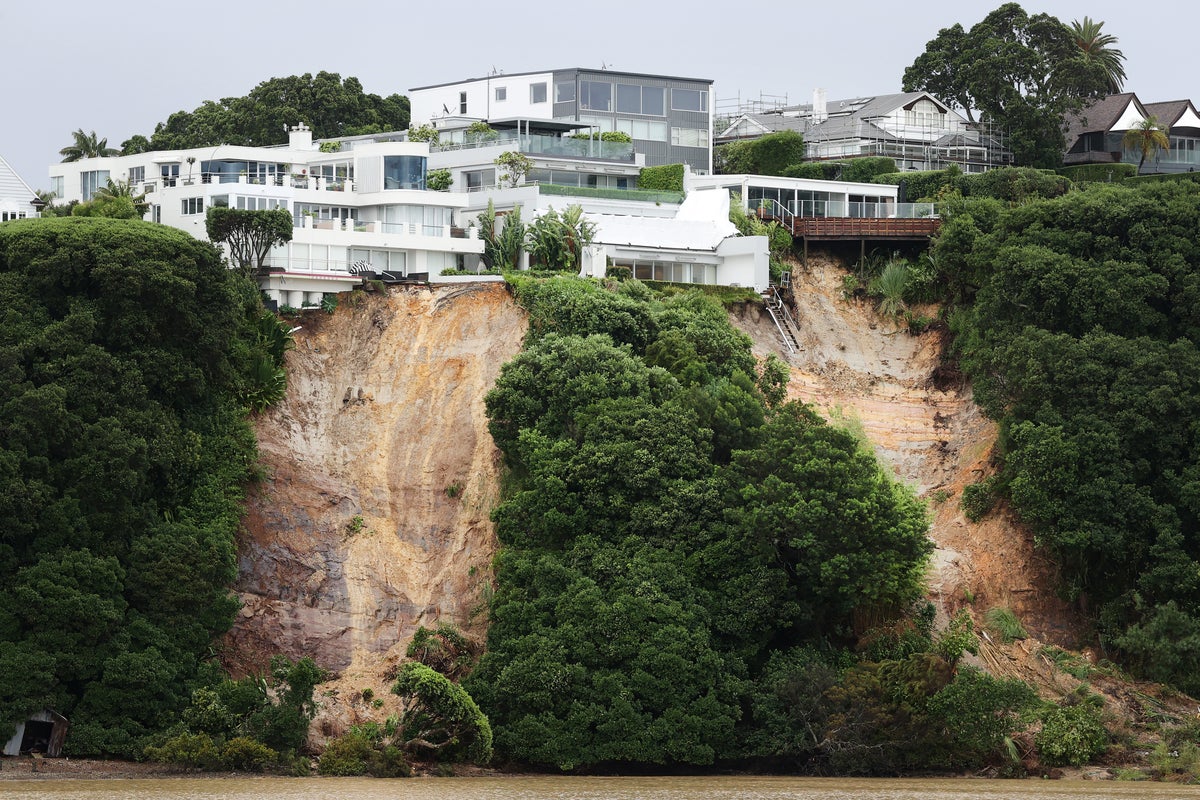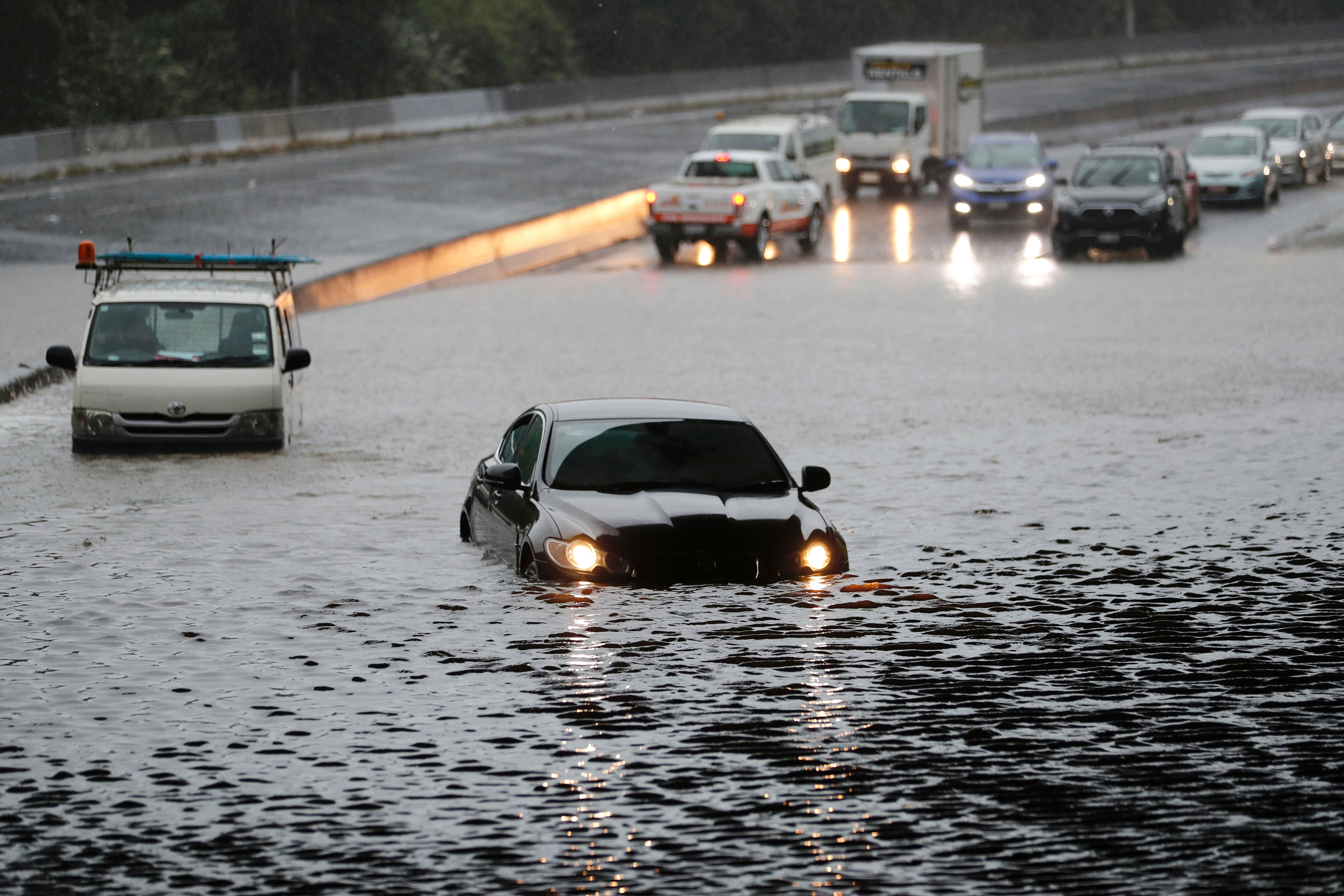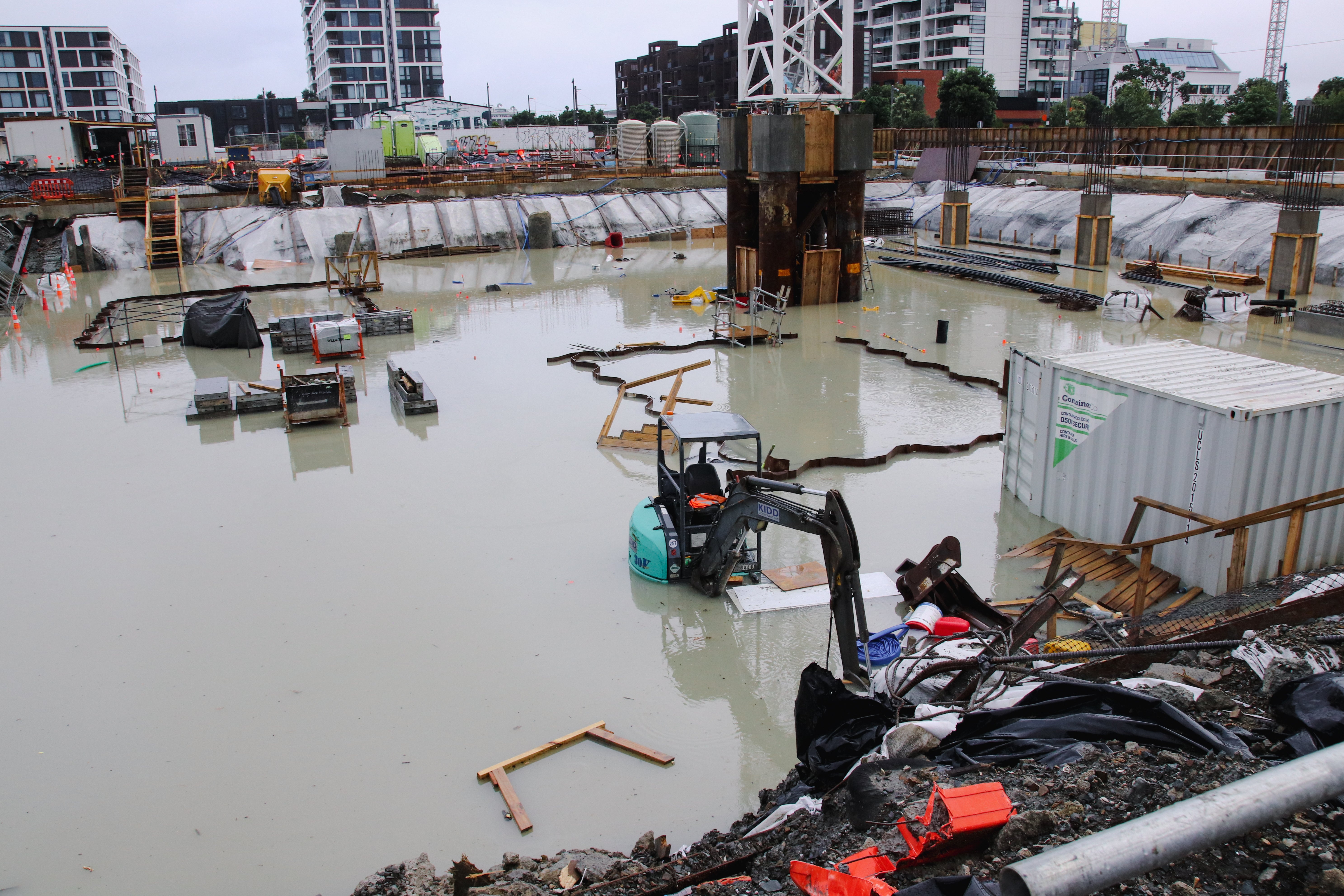
Auckland has recorded the wettest month in its history, New Zealand’s climate science body said after the city was pounded by record-breaking rainfall.
New Zealand’s largest city received 21 inches (533mm) of rain in January, according to the National Institute of Water and Atmospheric Research (Niwa).
It broke the previous record of 17 inches (420mm) from February 1869, the agency said on Thursday, citing the Central Auckland Rainfall series that is based on historical studies by Anthony Fowler, an honorary associate professor.
Dr Fowler, who is from the School of Environment at the University of Auckland, said what was seen in the past few weeks was unprecedented in history since record keeping began 170 years ago.
“Total January rainfall was more than twice the previous record for the month, contributing to an exceptionally wet summer and the wettest three months on record,” he said.
“It was already a very wet January before the storm on the 27th, but that single event doubled the total over a single day. Rainfall intensities in the early evening, at the height of the storm, were quite astounding.”

The city of 1.6 million people declared a state of emergency after severe thunderstorms, coupled with record-shattering rain, flooding and landslides on 27 January caused widespread damage.
Four people died in rain-related incidents and hundreds of properties were damaged or destroyed. At least 3,500 homes suffered power outages.
Auckland experienced over 45 per cent of its yearly rainfall in just one month, Niwa said.
This was 8.5 times higher than a typical January and over 2.5 times an entire summer, it added.
Niwa meteorologist Ben Noll said a number of environmental factors came together in a “perfect storm” to cause the “unparalleled deluge”.
“A formidable La Niña and marine heatwave led to more moisture being available, which was harnessed by an atmospheric river,” he said.

“High pressure to the south then blocked it, keeping it in place. The storm was also supported by a unique phenomenon called a low-level jet, as well as converging winds that extended lengthwise across the most populated part of the country.”
The extreme weather was made more intense due to the climate crisis, added Niwa climate scientist Dr Sam Dean.
“The Earth has warmed by about 1.1C already because of human activity and this extra heat gives more power to extreme rainfall,” he said.
“All other things being equal, we would expect climate change to contribute between 10-20 per cent more rain in the most intense part of this storm.”
The weather forced newly appointed prime minister Chris Hipkins to make an unscheduled stop in the city to tour flood-hit homes.
“This is an unprecedented event in recent memory,” Mr Hipkins had told reporters.
“The level of devastation in some areas is considerable,” he added.







